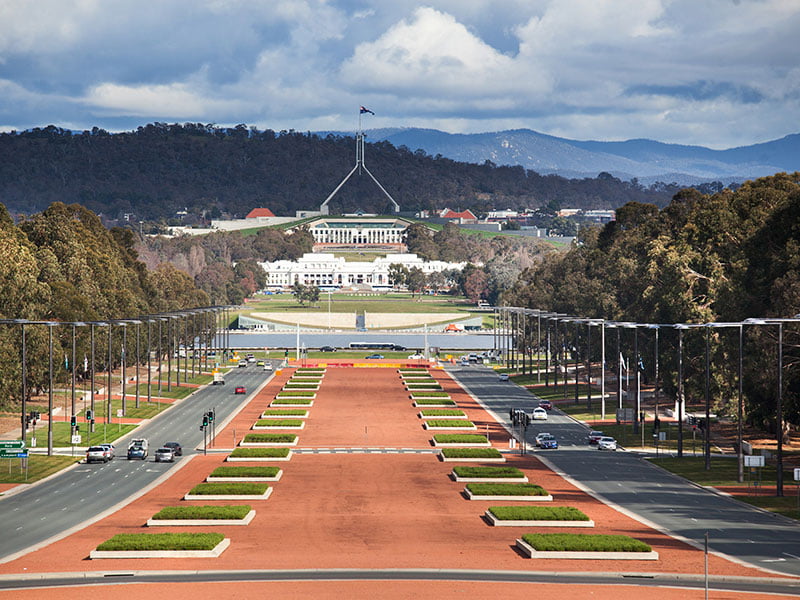A “fair go for those who have a go” are the words that became firmly etched in my mind during Prime Minister Scott Morrison’s first speech after winning Government in 2019.
As a tech startup ‘having a go’ for over four years now, this rhetoric easily fuelled my belief in the notion that smart local operators can play a role and indeed take a stake in what is a trillion dollar global data sharing market.
Yet repeatedly entrepreneurs reach that moment on the journey across Australia’s great procurement divide where we are faced with the reality that cost-effective, secure and robust technology platforms are being held back by government decision makers, ignored by industry incumbents, or sidelined by lobbyists with exceptionally large cheque books.
The InnovationAus “Selling to Government” survey strongly reinforces that the federal government process for buying technology is neither fair nor transparent.

I witnessed my father Tom Cooper, a captain of the PC industry experiencing the same laggard actions back in the 70’s and 80’s when the industry transformed from electric to electronic.
So as the leader of the independent and privacy-centric ID Exchange, I have decided if the government won’t take the lead, I will.
In launching our new Australian Data Exchange brand we are bringing together the platforms, IP and experience to build the fluid data sharing economy Australia needs.
Australian Data Exchange represents data sharing technology which is security-audited, accredited and ready for government. This stems from securing a critical partnership in 2017 with UK privacy-focused data sharing platform digi.me (founded by Julian Ranger whose former company STASYS developed US military internet interoperability software systems. STASYS sold to Defence giant Lockheed Martin in 2005.)
Digi.me has built a global data grid that offers secure facilitation ‘pipes’ to route personal information via the citizen, without digi.me seeing, touching, or holding data ever – a grid to which the Australian Data Exchange is now fully connected.
Why is privacy so important? Privacy has become the cornerstone of trusted data sharing. It’s also natural to think that privacy is the domain of Government, protecting its citizens through adequate legislation and building infrastructure.
Yet as America’s largest tech company and ‘independent’ operator, Apple hasn’t waited for national regulation reforms to take the lead, making privacy a key selling proposition and building its platform around protecting its customers. With cash reserves bigger than many countries entire economies, Apple has proven that it knows what is important to people.
Privacy and consent is now part of the bottom line, a true driver of business and essential to government. Independents have invested tens of millions of dollars building privacy-focused data sharing infrastructure. There is zero need for governments to waste taxpayer’s money duplicating this technology.
And thanks to the efforts of an independent Australian data exchange business “having a go”, Australian personal data is now interoperable, offering consumers the ability to control and privately share personal data with governments or business, with expressed consent across synchronised Social, Finance and Health sources.
This move effectively switches on Australia’s “economy wide” data sharing aspirations years ahead of schedule, a move frankly we could have activated over a year ago if we had not placed so much emphasis on responding to government calls for industry submissions, providing free industry consultations and sharing strategic intelligence into our federal government, believing it was part of the rite of passage to gain credibility and sell to government such cornerstone platform innovation.
With enabling tech in hand, no longer can we sit on the sidelines and play the polite waiting game for Government.
Australian Data Exchange, as an independent, will rightfully fight, agitate and disrupt to unapologetically advance Australia’s place in the global trillion-dollar personal data economy to unlock GDP and jobs growth. Because if we don’t try to shift our market and help businesses with trusted data exchange or be ready to bridge data exchanges in our public and privacy sectors, other foreign vendors and Big Tech operators will.
At this very moment under the trained eye of national security, data protection and privacy experts, we have introduced fit-for-purpose Covid solutions from companies that sit within the Five Eyes alliance and support our economic growth agenda. Military-grade technology that has been developed over years is available to the government to deploy today.
Activating the personal data economy is also a huge win for Australian FinTechs. Local APIs and applications created on the platforms offered by the Australian Data Exchange have privacy, security and consent built in. So FinTechs can avoid costly duplication of software development and simply concentrate on creating greater value in the data sharing ecosystem of citizens, business, government and society as a whole.
As digi.me is a global platform that allows borderless data sharing, solutions built on the environment will help boost a new UK-Australia Free Trade Agreement and FinTech Bridge alliance with an operating model set to retain over 98 per cent of the profits generated in Country.
In a post-COVID world where health data will feasibly be linked to international travel, an interoperable, international data sharing platform will be critical to reopening economies and safely mobilising citizens.
Our message to Canberra is clear: Independents have already created the secure technology to grow an industry that will create better services tailored for citizens, efficiencies for governments, thousands of jobs and grow our economy.
Do you know more? Contact James Riley via Email.
